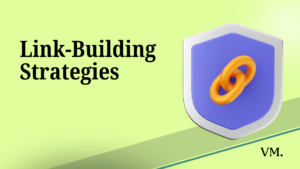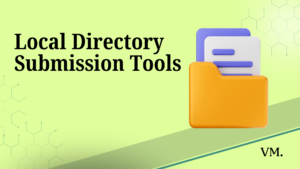Local link building strategies can be a game-changer for businesses that want to boost their online presence. This helps them attract more customers from their local area. In fact, 76% of people who search on their smartphones for something nearby visit a business within a day.
This means that if you’re not using local link building strategies, you could be missing out on a lot of potential customers.
Why Local Link Building Matters?
Local link building is important because it helps your business rank higher in local search results. When someone searches for a business like yours on Google, the search engine uses a number of factors to determine which businesses to show in the results.
One of the most important factors is the number and quality of backlinks pointing to a business’s website. Backlinks are links from other websites to your website. The more backlinks you have from high-quality websites, the higher your website will rank in search results.
This is because search engine rankings consider backlinks as votes of confidence. The more backlinks you have, the more trustworthy and authoritative your website appears to search engines.
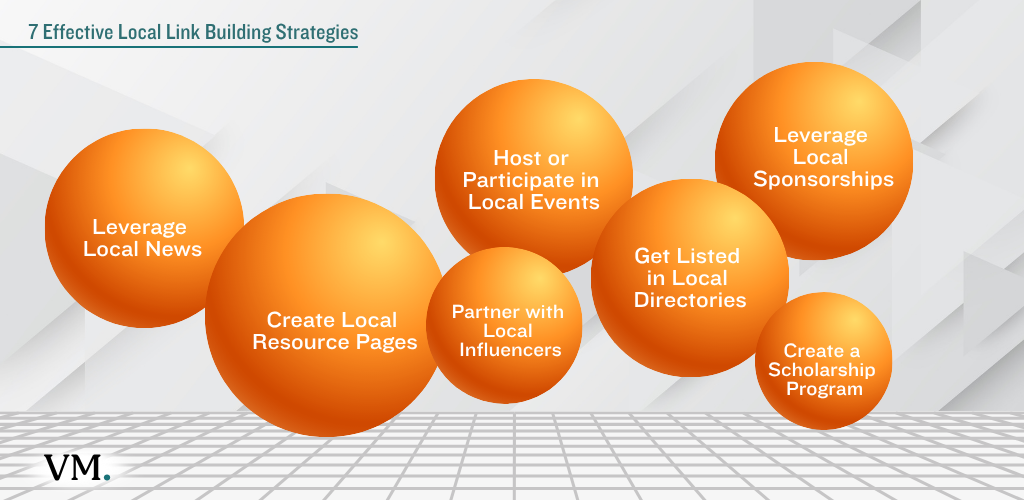
7 Effective Local Link Building Strategies
Now that you know why local link building is so important, let’s take a look at a few effective local link building strategies you can use to build links to your business’s website.
1. Leverage Local Sponsorships
Sponsoring local events, sports teams, or charities is a win-win. Not only are you supporting your local community, but you’re also earning valuable backlinks to your website.
Look for opportunities to sponsor events and organizations such as:
- Little league teams.
- Local festivals.
- Charity runs or walks.
- School events.
When you sponsor these events, make sure your business is listed on their website with a link back to yours. This will help you gain visibility in the online business directories.
2. Create a Scholarship Program
Creating a scholarship program might sound ambitious, but it’s a great way to get high-quality backlinks to your website. One business owner created a scholarship and was not only featured in their local paper but also earned a link from the Wall Street Journal.
To implement this strategy, you should first create a scholarship that is relevant to your industry and local market. Then, you need to set up a dedicated page on your website with all the details. You should then reach out to local high schools and colleges to promote it.
3. Get Listed in Local Directories
Getting your business listed in online business directories and local directories is one of the easiest and most effective ways to build local backlinks.
There are a number of different directories you can list your business in, including:
- Google My Business.
- Yelp.
- Yellow Pages.
- Foursquare.
When you list your business in a directory, make sure to include your business name, address, phone number, website address, and any other relevant information. You should also make sure that your business listing is consistent across all directories. This will make it easier for people to learn local businesses like yours.
4. Partner with Local Influencers
Local influencers are people who have a large following in your local area. They could be bloggers, journalists, community leaders, or other non-competing businesses. Partnering with local influencers is a great way to get the word out about your business and earn backlinks from their websites and social media profiles.
You can find local influencers by searching on social media or using a tool like BuzzSumo. Once you’ve found a few influencers you think would be a good fit for your business, reach out to them and see if they’re interested in partnering with you. You can offer them a free product or service in exchange for an honest review on their blog or social media.
5. Create Local Resource Pages
Creating local resource pages is a great way to attract links from other local businesses and organizations. These pages can provide valuable information about your local area, such as:
- Best hiking trails.
- Top-rated restaurants.
- Local farmers markets.
- Upcoming events.
To find opportunities to build links through this local link building strategy, you can create blog posts or articles about your local area and include links to other local businesses. This could involve interviewing local business owners, writing about local events, or creating guides to the best places to eat, shop, and play in your city.
This will help you establish your business as a thought leader in your local market.
6. Host or Participate in Local Events
Hosting or participating in local events is a great way to get your business in front of potential customers and earn backlinks. You can find local events to participate in by searching online or contacting your local chamber of commerce. Another good place to check is Meetup.com.
When you participate in local events, make sure to bring business cards and other marketing materials. You should also promote your participation in the event on your website and social media channels.
By staying active in your community, you can build relationships that can lead to more opportunities for local link building.
7. Leverage Local News
Getting your business featured in local news is a great way to earn high-quality backlinks. There are a few different ways you can leverage local news to build links, including:
- Submitting press releases about your business.
- Pitching story ideas to local journalists.
- Getting involved in local events that are likely to be covered by the news.
To get your business featured in local news, you can start by creating a list of local publications and journalists. You can use Google News to find relevant publications in your area.
Best Practices for Local Link Building
As you implement the link building tactics above, keep these best practices in mind.
| Do | Don’t |
|---|---|
| Focus on quality over quantity. | Buy links. |
| Aim for relevance to your business and location. | Ignore nofollow links. |
| Diversify your link sources. | Use exact-match anchor text excessively. |
| Monitor your link profile regularly. | Neglect your website’s content. |
It’s also important to make sure your website has a privacy policy in place if you’re asking for people to sign up to receive something or asking for personal information. Since 2019, Google has treated NoFollow links as “hints” for crawling and indexing.
So don’t discount these links entirely – they can still provide value and improve your link profile.
Measuring Your Local Link Building Success
There are a number of ways you can measure the success of your local link building efforts. These include the following.
- Local search rankings. This is perhaps the most important metric to track, as it will give you an indication of how well your website is ranking for relevant local searches. You can track your local search rankings using a tool like Google Search Console.
- Google My Business insights. If you have a Google My Business listing (and you should.), you can use the insights dashboard to track how many people are finding your business through Google Search and Maps. You can also see how many people are clicking on your website link, calling your business, or getting directions to your business from your Google My Business listing.
- Website traffic from local sources. You can use Google Analytics to track how much traffic your website is getting from people in your local area. This will give you an indication of how effective your local link building efforts are at driving traffic to your website.
- Conversion rates from local traffic. It’s one thing to drive traffic to your website, but it’s another thing entirely to convert that traffic into paying customers. You can track your conversion rates from local traffic by setting up goals in Google Analytics. This will help you see how many people are taking the desired action on your website, such as making a purchase or filling out a contact form.
- Number and quality of backlinks. You can use a tool like Ahrefs or Moz to track the number and quality of backlinks pointing to your website. This will give you an indication of how well your link building efforts are paying off. These local SEO tools can help you understand things such as domain authority as well as that of your backlink profile.
It’s important to track your progress so you can see what’s working and what’s not. Use tools like Google Analytics and Ahrefs to monitor these metrics. Remember, building a strong local link profile takes time.
Be patient and consistent in your efforts.
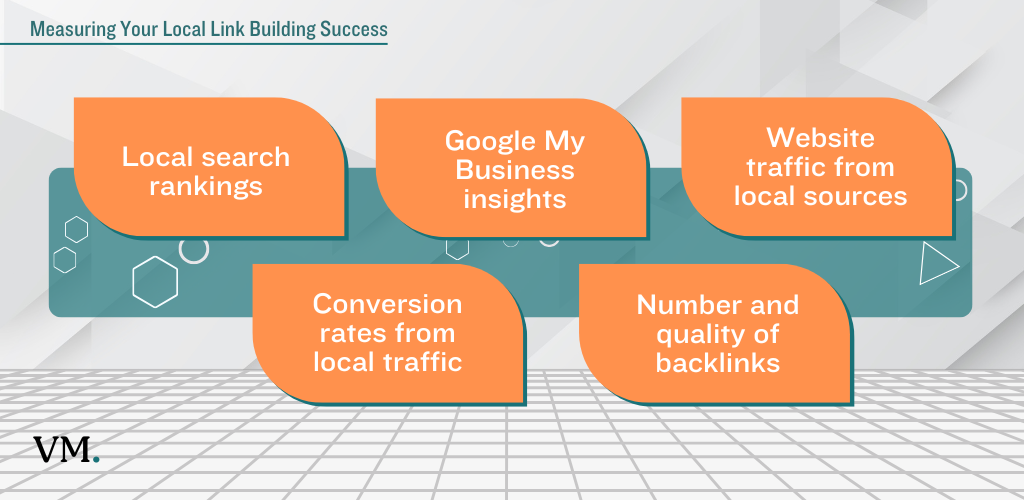
Key Steps for Consistent Directory Listings
1. Standardize Your Core Business Information (NAP)
-
Make sure your business Name, Address, and Phone number (NAP) are exactly the same on every directory. Even small differences—like using “Suite” vs. “Ste.” or including/excluding “Inc.”—can cause inconsistencies and hurt your local SEO and customer trust.
-
Also keep your website URL, business description, hours, and other key details (like payment methods, categories, and social media links) consistent everywhere.
2. Use Directory Management Tools
-
Consider using platforms like Moz Local, Yext, or SEMrush. These tools can sync your business information across dozens of directories automatically, saving time and reducing errors.
-
Such tools also alert you to inconsistencies and help you quickly update listings after changes (like moving locations or updating hours).
3. Regularly Audit Your Listings
-
Periodically check your business information on all major directories (e.g., Google Business Profile, Yelp, Yellow Pages, industry-specific sites) to ensure accuracy.
-
Especially audit your listings after any changes to your business details, such as a new phone number, address, or hours.
4. Update Listings Promptly
-
Whenever your business information changes, update it everywhere as soon as possible. Inconsistent or outdated info can lead to lost sales, confused customers, and lower trust scores.
5. Verify Listings Where Required
-
Some directories require verification (e.g., postcard or phone confirmation). Complete these steps to ensure your listing is published and locked in.
Why Consistency Matters
-
Businesses with inconsistent directory information can see up to 68% lower customer engagement and significantly reduced trust.
-
Accurate, consistent listings can lead to 73% higher customer conversion rates compared to those with inconsistencies.
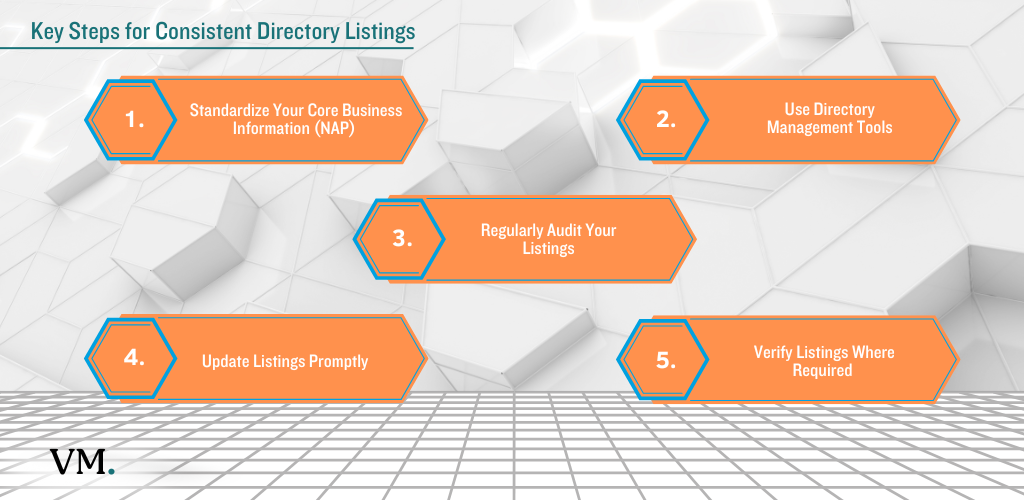
Summary Table: What to Keep Consistent
| Information Type | Example |
|---|---|
| Name, Address, Phone (NAP) | “Suite” vs. “Ste.”, “Inc.” vs. no “Inc.” |
| Website URL | http:// vs. https:// |
| Business Description | Same wording and details everywhere |
| Hours of Operation | Identical across all directories |
| Categories/Services | Match your business type and offerings |
| Payment Methods | List all accepted consistently |
| Social Media Links | Use official, up-to-date profiles |
| Attributes | Accessibility, parking, etc. |
By standardizing your business information, using management tools, and regularly auditing your listings, you can maintain a strong, consistent presence across all local directories—boosting both your search visibility and customer trust.
My Summary
Local link building strategies are not just about improving your search rankings – they’re about embedding your business in the fabric of your community. By focusing on creating value, building relationships, and staying active in your local area, you’ll naturally attract the kind of high-quality, relevant links that boost your local SEO.
Remember, consistency is key. Keep at it, track your progress, and don’t be afraid to get creative. Your efforts in local link building will not only improve your online visibility but also strengthen your ties to the community you serve.
And in the end, that’s what local business is all about.
FAQ
Local link building is the process of acquiring backlinks from websites, organizations, and influencers within your geographic area to your business’s website. These links help improve your visibility in local search results and attract more customers from your community
Local link building boosts your website’s authority and trustworthiness in the eyes of search engines, which helps you rank higher in local search results. This can drive more local customers to your business, as 76% of people who search for something nearby on their smartphones visit a business within a day
Key strategies include:
-
Sponsoring local events, sports teams, or charities.
-
Creating a scholarship program relevant to your industry.
-
Getting listed in local directories like Google My Business, Yelp, and Yellow Pages.
-
Partnering with local influencers for reviews or mentions.
-
Creating local resource pages (e.g., guides to local attractions or businesses).
-
Hosting or participating in local events.
-
Leveraging local news by submitting press releases or pitching stories to local journalists
Find reputable online and local business directories (e.g., Google My Business, Yelp, Yellow Pages, Foursquare). Ensure your business information (name, address, phone number, website) is accurate and consistent across all listings for better local SEO results
-
Focus on quality over quantity of backlinks.
-
Prioritize relevance to your business and location.
-
Diversify your link sources.
-
Monitor your link profile regularly.
-
Avoid buying links, using excessive exact-match anchor text, or neglecting your website’s content
Track metrics such as:
-
Local search rankings (using tools like Google Search Console).
-
Insights from Google My Business (e.g., website clicks, calls, directions).
-
Website traffic from local sources (via Google Analytics).
-
Conversion rates from local traffic.
-
Number and quality of backlinks (using tools like Ahrefs or Moz)
Track metrics such as:
-
Local search rankings (using tools like Google Search Console).
-
Insights from Google My Business (e.g., website clicks, calls, directions).
-
Website traffic from local sources (via Google Analytics).
-
Conversion rates from local traffic.
-
Number and quality of backlinks (using tools like Ahrefs or Moz)
Building a strong local link profile takes time and consistency. Results may not be immediate, but with patience and ongoing effort, you’ll see improvements in your local search rankings and online visibility
No. Since 2019, Google treats nofollow links as “hints” for crawling and indexing, so they can still provide value and improve your link profile. Don’t discount them entirely
Consistent efforts help you build lasting relationships, embed your business in the local community, and steadily improve your search rankings and online reputation over time
Local link building isn’t just about SEO—it’s about becoming an active, valued member of your community. By creating value, building relationships, and staying engaged locally, you’ll naturally attract high-quality, relevant links that benefit both your business and your neighborhood
Share:


